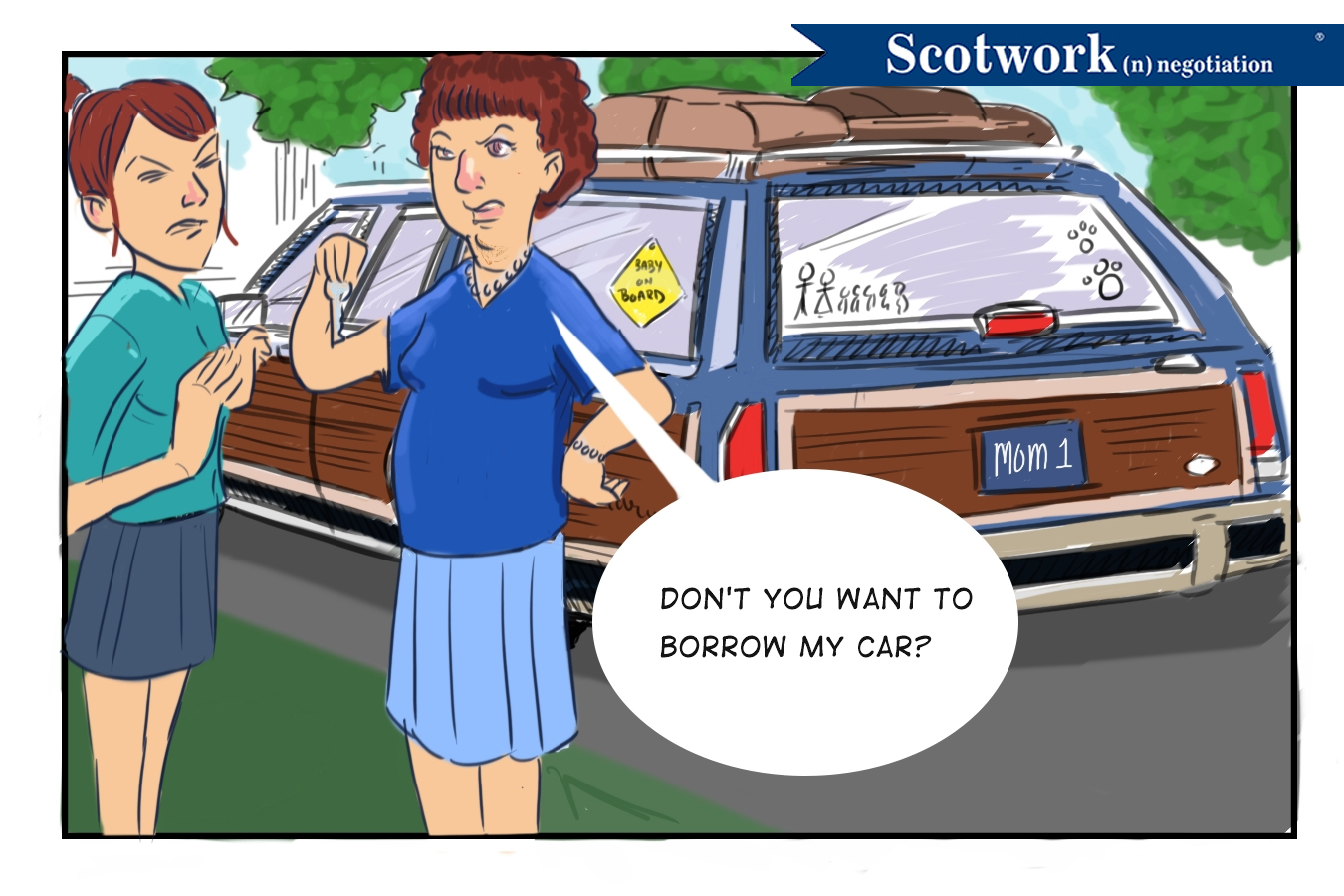“Mom! Why can’t I have the keys to the truck?!” My 16 year was a little exasperated with me when I told her she couldn’t drive our new truck while her car was in the shop. Instead of storming off when I said “no” or just letting me drive her, my independent teenager went into high gear and surprised me with what she did next.
As a mother of two teenage daughters, I am always being challenged. Kids are great at getting what they want because they know innately not to give up when they hear a “no” and they have that childlike curiosity that drives their persistence when they want something.
As a new driver, my 16 year old is enjoying her independence and the thought of being driven somewhere by her Mom was just inconceivable to her. So when she asked for the car keys to go to a movie with a friend—and refused my offer to drive her—she realized she had to get around “no” and find her way to “yes”. Instead of just arguing with me, she focused on understanding the rationale of my decision by asking questions like, “Why can’t I have the car keys?” or “If can demonstrate how well I drive, would you feel better about me borrowing the truck?”
Generally, it’s easy to ask questions but hard to listen attentively to the response, and furthermore ask more questions to get to the motivations of the other side. Fear is often the culprit. We get fearful about the “what ifs”… What if they say “no?” What if I don’t like the answer they give me? Answers to good questions are opportunities to find the path to “yes”.
My daughter reminded me of how fearless questions lead to opportunities. The most effective questions I hear are often open ended; not closed, or yes/no questions. Those kinds of questions open the door to a conversation about the obstacles to “yes.” The hard part is listening attentively to their responses and probe, probe, probe with more open ended questions. Most of the time it’s not about listening for the “gotcha statement” but rather it’s about listening for the motivates, needs, and drivers to the original response given. Armed with that information, you are now in a better position to create a solution or offer a proposal that solves your need and theirs.
When my daughter started doing this she found out that I was not philosophically opposed to her driving my car but genuinely concerned about her safety because my car, a nice big truck, is much larger than her vehicle. When she discovered that, she made a proposal worth listening to, “Let’s go take it for a spin! Once you see how well I can drive it, you’ll be okay with me borrowing it!”
The end result was that she was able to demonstrate she could handle my truck and was actually allowed to borrow it. Better yet, she returned it without incident. None of that would have happened unless she got curious and asked open ended questions and tried to understand my decision rather than overly persuade her point, which would certainly not have worked. What impressed me the most was her ability to listen to the answers to her questions and then make a logical proposal to win me over.
My daughter reminded me not to be afraid to ask questions, because asking the right questions will help you find a way to get what you want!
Have No Fear!
Let's be honest - negotiations can be scary! Being able to keep your cool and make good decisions under stress isn't always easy. Particularly when you don't have a structure, or method, or a robust toolbox at your disposal.
Scotwork can help. For any critical negotiation you have, bring Scotwork in to help you prepare, stress test your strategy, and coach you and your team along the way. Let us help you make your next negotiation to be a better negotiator.

